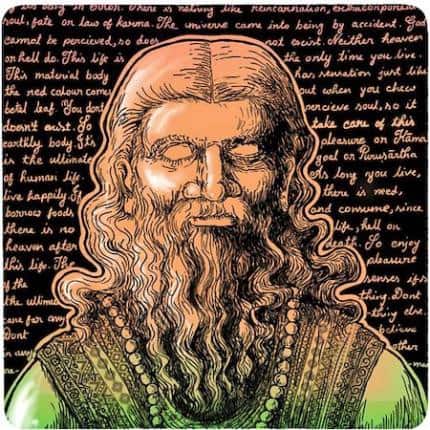
Charvaka
Charvaka ( also known as Lokāyata, is an ancient school of Indian materialism. Charvaka holds direct perception, empiricism, and conditional inference as proper sources of knowledge, embraces philosophical skepticism and rejects ritualism, religion and supernaturalism. It was a very popular belief system in India before the emergence of Jain and Buddhist tradition.Brihaspati is traditionally referred to as the founder of Charvaka or Lokāyata philosophy, although some scholars dispute this. During the Hindu reformation period in the 600 BCE, when Buddhism and Jainism arose, the philosophy was well documented and opposed by the new religions. Much of the primary literature of Charvaka, the Barhaspatya sutras, were lost either due to waning popularity or other unknown reasons. Its teachings have been compiled from historic secondary literature such as those found in the shastras, sutras, and the Indian epic poetry as well as in the dialogues of Gautama Buddha and from Jain literature. However, there is text that may belong to the Charvaka tradition, written by the skeptic philosopher Jayarāśi Bhaṭṭa, known as the Tattvôpaplava-siṁha, that provides information about this school, albeit unorthodox.One of the widely studied principles of Charvaka philosophy was its rejection of inference as a means to establish valid, universal knowledge, and metaphysical truths. In other words, the Charvaka epistemology states that whenever one infers a truth from a set of observations or truths, one must acknowledge doubt; inferred knowledge is conditional.Charvaka is categorized as a heterodox school of Indian philosophy. It is considered an example of atheistic schools in the Hindu tradition.
